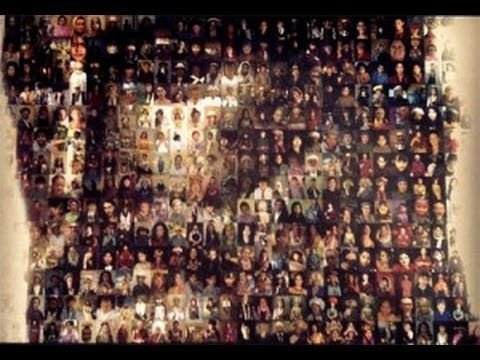Centralized government is a byproduct of using ideology to produce consensus. Ideology is "story based consensus", humans choose a story they resonate with, and then provide support for that, and the story "converge on a block that gets 12 seconds of authority" is not as immersive as "vote for a government that gets 4 years of authority". [1]

From memes that spread by coercion, to memes that spread by mate choice
State-capitalism, state-communism, state-socialism, are all built on coercion and centralized government, which forms conditions for a form of culture that is often called "statism". Three attempts to solve problems in different ways, and neither has managed to build a free market.
With blockchains and free markets for state, and the idea of a free market for governance-as-a-service, that could potentially build a system that is based on memes that spread through mate choice (so, a free market. )

Innovating consensus on top of new mediums for computation
With computers, those are a new medium, and so the rules for how consensus can be produced changes and builds a foundation for an industry for governance-as-a-service.
Ideology is a consensus mechanism. The field that proof-of-work innovated is consensus mechanisms, and so it competes with ideology as a historically older system. Casper is also innovating that same field.
With ideology, a few parties compete for authority for 4 years or so, whereas with proof-of-work, that is compressed along the arrow of time, so that thousands of parties compete for authority for a block, 12 seconds or so.
The externalization of law and human-technology co-evolution
Before ideology, religions were the dominant consensus mechanism. With religions, laws needed the brain, and therefore, the genes to survive and propagate, and so laws that were loudest in ordering genes to replicate them had a survival advantage, and such laws would propagate by threatening annihilation of the genes on one hand and promising “eternal life” on the other.
Then, with nation-states, there was an externalization of law into a legal system, laws were freed from the confines of brains that are dependent on gene multiplication, and there was less need for laws to co-opt genes for their purpose, and so economic science for example could develop, John Nash could talk about his Nash Equilibrium which Casper builds on.
With Ethereum and Ethereum 2.0s, "virtual states", there is a continuation of the process to detach law from dependency on genes, which began to take shape with representative government, enabling new types of mediation, new incentive systems which can harness our attention in new ways, using for example game theory and economic protocols.


Upvoted, Highly rEsteemed and Followed.
And thank you for the Link to the GitHub piece.
I appreciate this perspective.
Thank you and SteemON!
Wow. That's a different thought than normal.
Hi, I enjoyed your article and like where your thoughts are headed. I want to offer a principle I've adopted, take it for what it's worth. Labeling and defining another's viewpoint, especially the viewpoint of the majority, weakens an argument and weakens it's persuasiveness. I'm thinking about "Statist" here. It's a very popular term in crypto and anarco capitalist circles, but I think it serves to create an "other," serves only to speak to the group (crypto circles and anarco capitalist circles), not those outside of the group, which means it weaken the argument's persuasiveness.
Thank you for your article.
I use the word "statism" as in a culture, which can be studied the way a bacteria culture in a petri dish can be studied, so rather than metaphor, an actual culture, a meme pool. The environment in which a culture grows shapes it, for example, when ancient greece collapsed, the information and science which were contained within that meme pool could not be processed by the Roman Empire, which was more centralized and therefore had a culture that was defined by limitations, box-like-thinking, and that resulted in for example Ptolemys' epicycle model of the solar system.
My vision with project Resilience[1], and the transaction-web, is a form of culture that is defined by possibility rather than limitations, similar to the past decades internet culture.
Sure, my comment is mostly to stir some thought on communication. "Statism" alienates readers who do not already agree with your perspective. To someone you would call a "statist" the very notion of "statism" seems utterly absurd and possibly offensive, either way undermines attempts to convince a person of your logic.
Also, odd to bring up Ptolemy. It's easy to hold the opinion of him as 'box like thinking' when put next to Copernicus, Kepler or Galileo . But in the Almagest he all but invented Trigonometry and developed a system that explained all available observations at a time when conic sections were poorly understood. He also mentioned the heliocentric model as being simpler in the course of this book.
No I meant during the regression from ancient greece to the roman empire, so before the renaissance in western culture, and I don't question his intelligence, rather, his ability to express it through the lens of the legal system he lived in (for example, he understood heliocentrism, but still conformed to geocentrism as an expression of dominance culture where those who ruled him liked to view themselves as the center of the universe. )